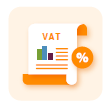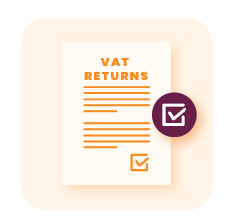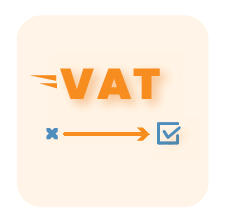Invoicing in Poland
Under the Polish VAT Act, invoices must be issued in two copies, with one given to the customer. These invoices can be issued at the earliest 30 days before, and no later than 15 days after the month’s end in which the goods or services were provided.
While the invoice can be in any currency, the VAT amount must be specified in Polish Zloty (PLN). Issuing VAT invoices is not obligatory for companies that exclusively deal in VAT-exempt goods or services. Additionally, for sales to non-business private individuals, VAT invoices are not necessary unless specifically requested.
Selling in Poland?
Simplified Invoice
The below information is required in each simplified invoice:
- Date of issue.
- Supplier’s VAT identification number.
- Type of goods or services supplied.
- VAT amount payable – or the information needed to calculate it.
- Specific, unambiguous reference to the initial invoice and the details that are being amended. (On a credit note, debit note, or another document treated as an invoice).
Simplified invoices can be issued if the gross amount does not exceed PLN 450 or EUR 100.
EU regulations allow member countries to make decisions at a national level. The EU Commission provides detailed information on the specific provisions adopted by each EU country on their website.
To support a claim for input tax deduction or reimbursement under EU refund schemes, a VAT invoice is essential. Businesses have the flexibility to include extra information on their invoices beyond the basic requirements outlined above.
Electronic Invoicing
Poland has voluntary electronic invoicing under Article 106g of the VAT Act, but is mandatory for B2G transactions under the Act on Electronic Invoicing in Public Procurement.
From January 1, 2022, structured invoices can be issued through the Krajowy System e-Faktur (KSeF) in accordance with Article 106na et seq of the VAT Act. However, as of January 1, 2024, electronic invoicing will be mandatory in Poland, following the publication of Council Implementing Decision 9217/22 by the Council of the European Union.
The KSeF system uses standardized invoice templates, which are populated by the taxpayer through an API and automatically stored in the national system for up to 10 years. To use the system, a taxpayer must be authorized and authenticated with a qualified electronic signature, seal, trusted profile, or KSeF-generated authorization token. The KSeF system assigns an identification number before the invoice can be issued, and the structured invoice is considered issued on the date it is sent to the National e-Invoice System and received on the date the identification number is assigned.
Last Updated: 11/01/2023
Disclaimer
The information provided by Global VAT Compliance B.V. on this webpage is intended for general informational purposes only. Global VAT Compliance B.V. is not responsible for the accuracy of the information on these pages, and cannot be held liable for claims or losses deriving from the use of this information. If you wish to receive VAT related information please contact our experts at support@gvc.tax








